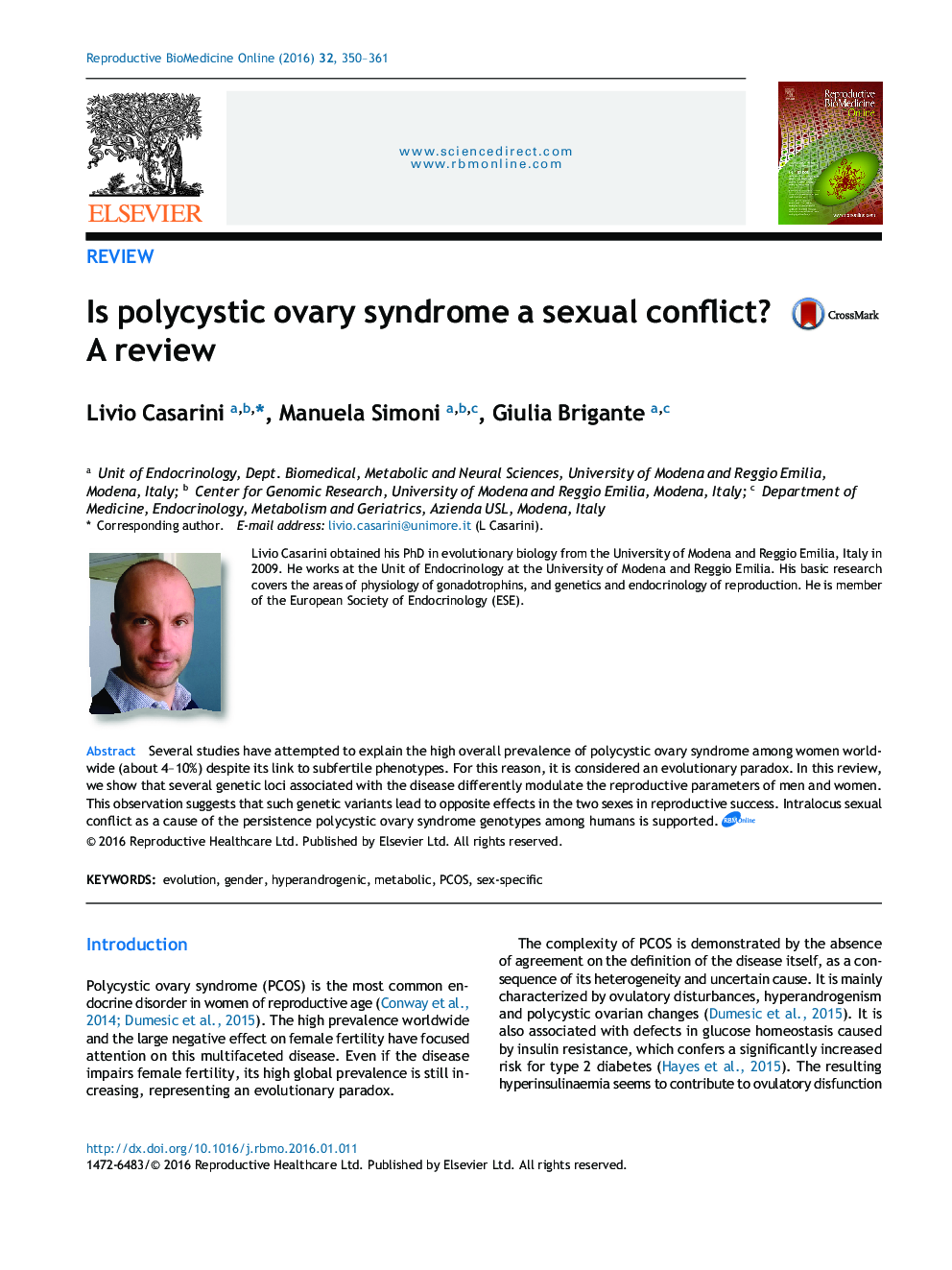| Article ID | Journal | Published Year | Pages | File Type |
|---|---|---|---|---|
| 3969946 | Reproductive BioMedicine Online | 2016 | 12 Pages |
•Since PCOS determines subfertility it is an evolutionary paradox.•PCOS-related gene variants lead to opposite, gender-specific effects.•PCOS genotypes oppositely impact the reproductive success of males and females.•PCOS paradox supports intralocus sexual conflict.
Several studies have attempted to explain the high overall prevalence of polycystic ovary syndrome among women worldwide (about 4–10%) despite its link to subfertile phenotypes. For this reason, it is considered an evolutionary paradox. In this review, we show that several genetic loci associated with the disease differently modulate the reproductive parameters of men and women. This observation suggests that such genetic variants lead to opposite effects in the two sexes in reproductive success. Intralocus sexual conflict as a cause of the persistence polycystic ovary syndrome genotypes among humans is supported.
